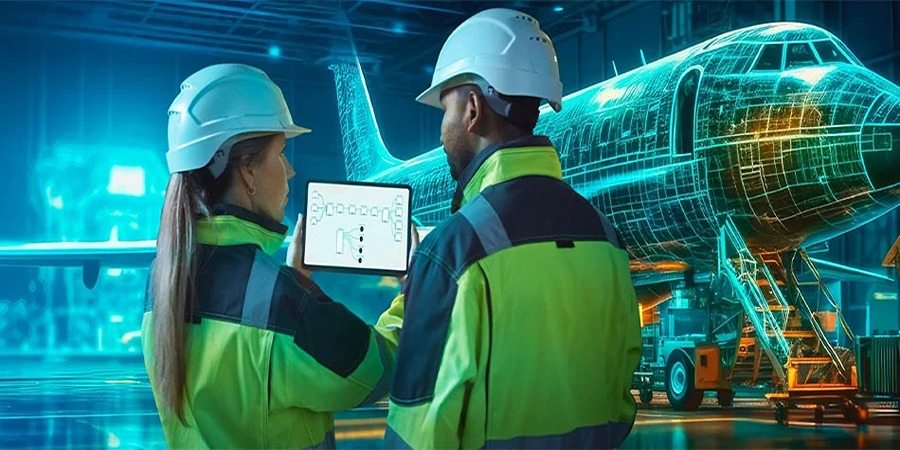
TROY, MI, June 2, 2025 – Altair has signed a memorandum of understanding (MoU) with the Georgia Institute of Technology to drive aerospace innovation. Within the agreement, Georgia Tech’s Aerospace Systems Design Laboratory will receive access to Altair resources to support research and projects aligned to building technology demonstrators with simulation and DA software. Together, the two organizations will explore how simulation, data analytics, and artificial intelligence (AI) can reshape operations in aviation, maintenance, repair, and overhaul (MRO), space, and robotics applications.
“Altair’s simulation, data, and AI technology already has a game-changing impact on aerospace companies around the world – no matter if they’re a fledgling startup or an established powerhouse,” said Dr. Pietro Cervellera, senior vice president of aerospace and defense, Altair. “We are excited to collaborate with a top-tier university like Georgia Tech to develop even more impactful applications and further strengthen our ties with the global academic and scientific community.”
“Georgia Tech prides itself on being one of the nation’s premier institutions for aerospace engineering. This dedication to excellence is why our Daniel Guggenheim School of Aerospace Engineering was named the nation’s top publicly funded graduate aerospace engineering program,” said Dimitri Mavris, regents professor in the school and director of ASDL. “Working together with Altair gives us yet another way to harness transformational technology to help our faculty and students break boundaries within aerospace engineering.”
The two organizations will collaborate on projects that let Georgia Tech professors, researchers, and doctoral students use Altair technology. This will help them try new ideas and create practical solutions. The MoU highlights joint work on technology models that can be shown to both business and scientific communities. This promotes knowledge sharing and helps deploy new applications.
This MoU reflects Altair’s focus on advancing computational methods within the aerospace and defense sector. Previous collaborations with organizations like JetZero and the European Space Agency demonstrate its approach to building technically aligned partnerships across the industry.
Source: Altair
About Altair

Altair Engineering Inc., founded in 1985 and headquartered in Troy, MI, is a computational science and AI leader. The company offers software and cloud solutions across various domains, including product development, high-performance computing (HPC), simulation, AI, and data analytics. Altair’s comprehensive, open-architecture platforms empower organizations to design efficient and sustainable products and processes. Altair has established itself as a key player in engineering and enterprise analytics, serving the automotive, aerospace, and manufacturing industries.
About Aerospace Systems Design Laboratory

The Aerospace Systems Design Laboratory (ASDL), established in 1992 at Georgia Tech’s Daniel Guggenheim School of Aerospace Engineering, focuses on the design, analysis, and integration of complex aerospace systems. Headquartered in Atlanta, GA, ASDL works on research and applications related to systems engineering, digital engineering, decision-making analytics, and lifecycle optimization. It supports multiple sectors including aerospace, defense, aviation, and space through collaborations with organizations such as NASA, the U.S. Department of Defense, and aerospace manufacturers. With approximately 50 research faculty and 300 students, ASDL runs funded projects addressing air vehicle design, propulsion, unmanned systems, and next-generation power systems. The lab manages around $12 million in annual research funding and generates an estimated $27.3 million in yearly revenue. ASDL has completed over 400 research projects and continues developing tools and methods for the aerospace industry.
